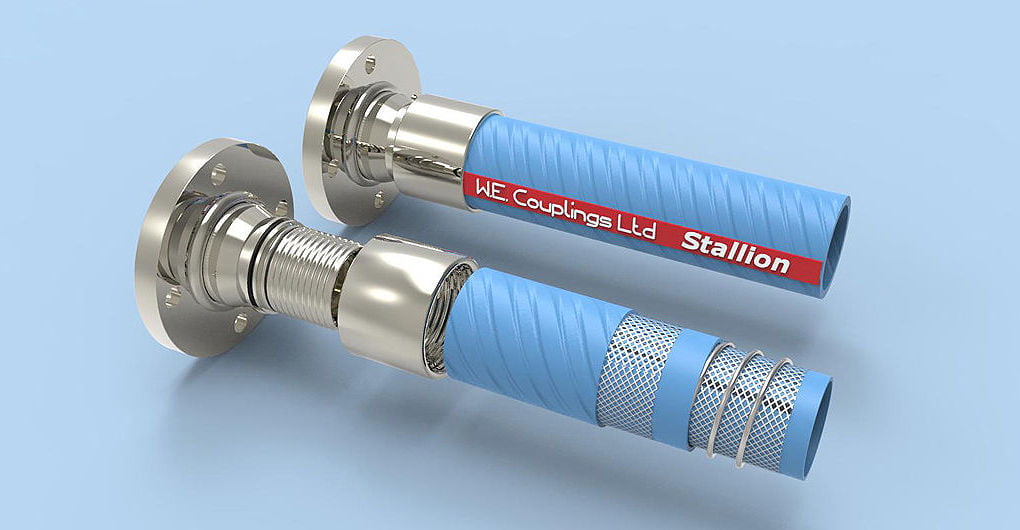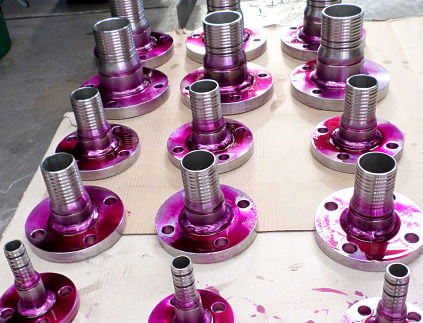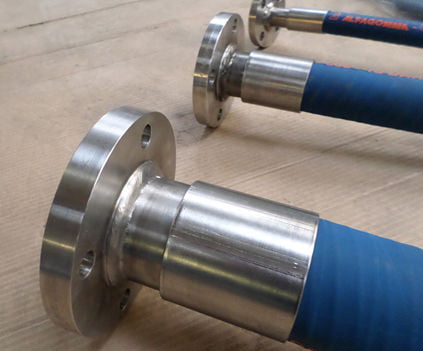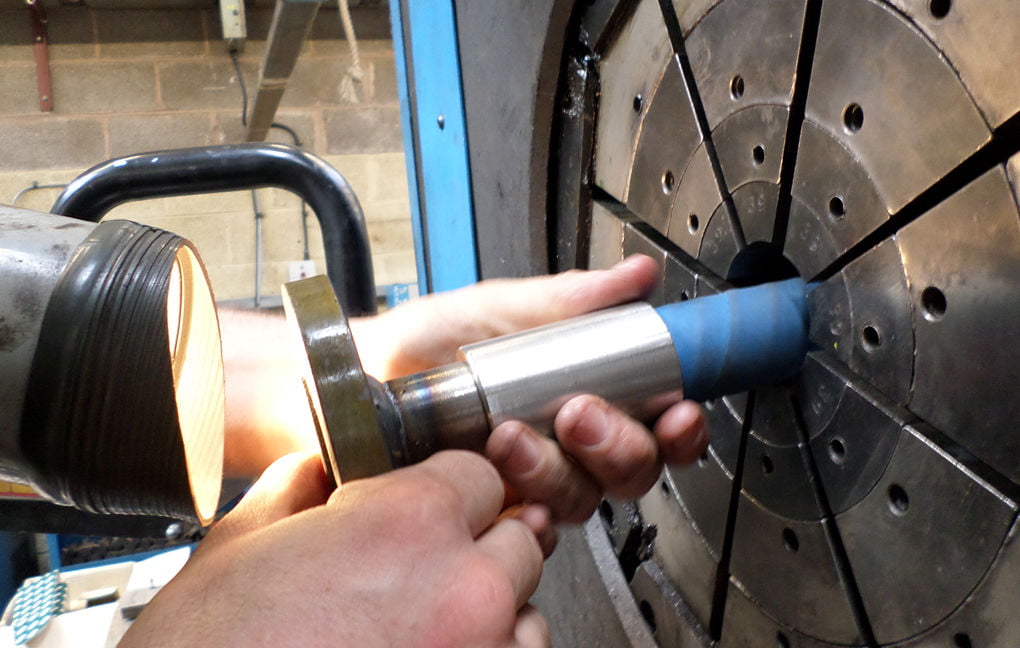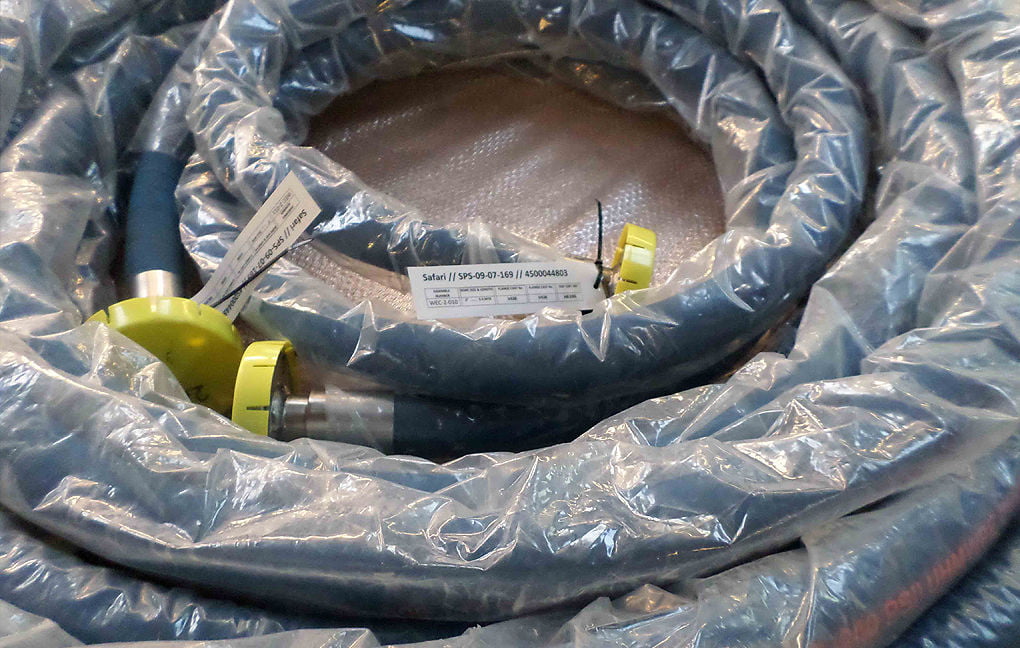W.E. Couplings Ltd have recently become involved with the transfer of extremely high concentrate acids and hypochlorites, involved in the process of liquid gas manufacture. The aggressive nature and working temperature of the medium involved would not be suited to the standard blends of rubbers and polymers found in normal hose types. Therefore we have to select a hose that is lined with, depending on the solution strength of the medium, XLPE, FEP, UHMWPE or even pure PTFE.
The fittings also have to be designed and manufactured from a special material, because even a high grade of stainless steel (grade 316 for instance) would be attacked and eventually corroded by the aggressive medium. This means going up in spec, almost as far as the grades of metal found in aerospace, to a Nickel-chromium-molybdenum wrought alloy known as ‘C-276’ or by it’s Hayne’s tradename ‘Hastelloy®’.
We perform a rigorous standard of hydrostatic testing to ISO 1402:2004 on all sizes of assembly. This measures lateral and longitudinal expansion of the hose assembly at rising pressure intervals, and also how far it twists over a pre-defined distance. We also test our assembly designs to destruction, so that we know exactly how much pressure overload it would take to burst such an assembly during operation.
This strict record keeping, in accordance with Shell Oil’s DEP & MESC system of standards, gives W.E. Coupling’s chemical hose customers complete traceability of each assembly. This begins at the material certification and identification, which is followed by a detailed inspection and test plan that keeps each stage of the production in-line with the DEP & MESC standards, ending up with an assembly that each component involved in it can be traced back to it’s origin, should any problems arise.
